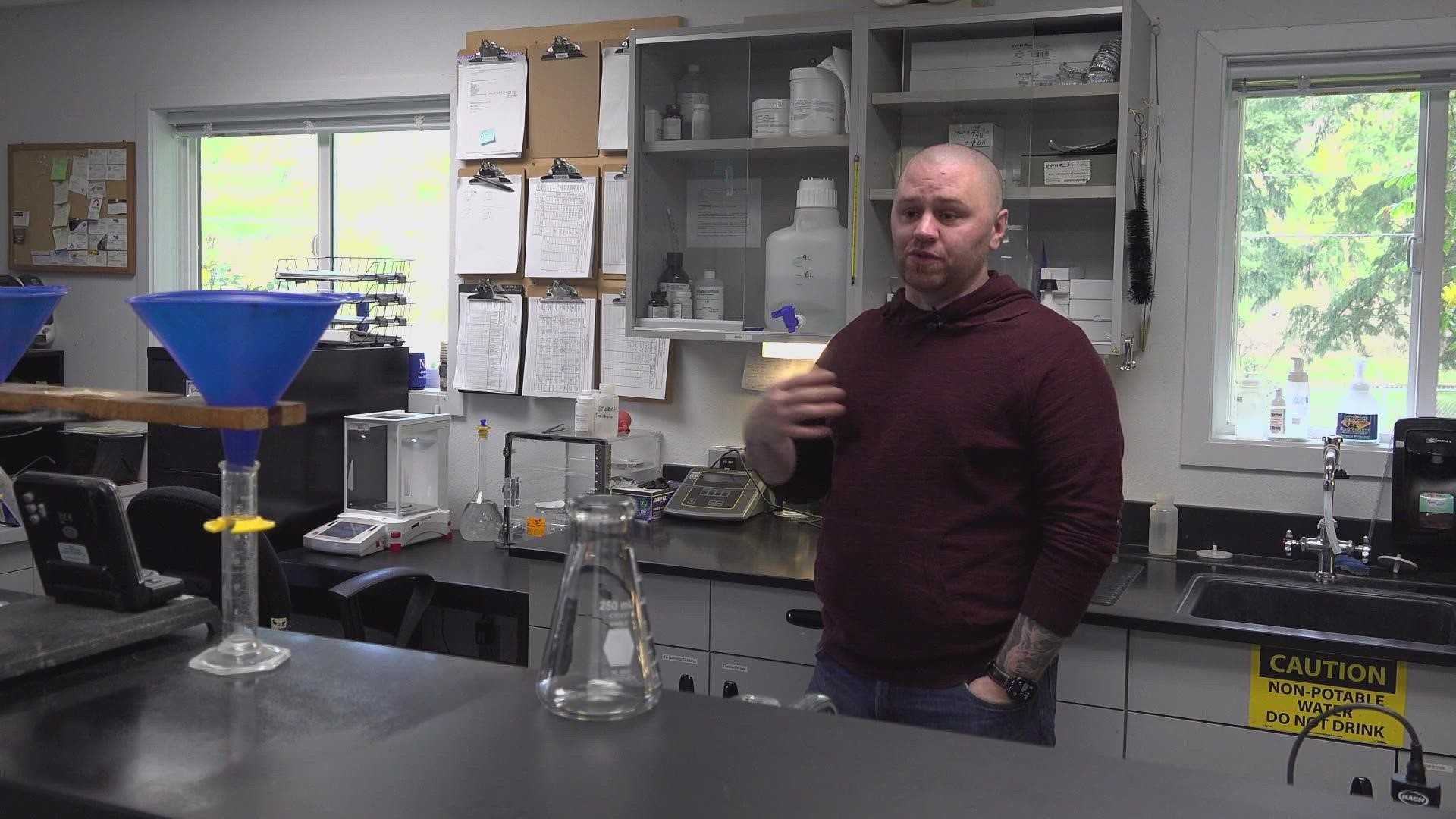TENINO, Wash. — On top of the Tenino Wastewater Treatment plant, waste is processed before going into an on-site lagoon, after which much of it will be hauled to other locations for further processing or use.
Tenino Mayor Wayne Fournier hopes in three to five years, Tenino will be able to process its waste into Class A biosolids on-site and ultimately produce a product that meets testing standards to be distributed used for all agricultural purposes.
"We want a closed system, we want a sustainable system, we want to be independent," Mayor Fournier said.
According to the Washington Department of Ecology, "biosolids are a nutrient-rich product of Washington’s wastewater treatment systems. They're a soil amendment farmers and land managers can use in place of commercial fertilizers. They're also used in the manufacturing of some fertilizers and as a component of compost, topsoil, and similar products."
A spokesperson said the Environmental Protection Agency (EPA) and the state department require biosolids to meet both the Class A for pathogens requirement and pollutant and vector attraction reduction (VAR) requirements to receive clearance to apply to any kind of land, without restrictions.
Fournier said he understands the initial "ick" factor some may have about the idea, but encourages people to learn more about the processes involved to remove pathogens.
"Everything is tested, it's treated, it's tested for chemicals, pharmaceuticals, metals like that. It's highly regulated," Fournier said.
He said it's important to reconsider how all waste is handled and is encouraging composting and other local methods to reduce the need for transporting waste.
"Nothing really lives through it except, supposedly, tomatoes," Fournier said. "We're making it every day and we gotta' figure out what to do with it so we of course, we treat it and our goal is to treat it from start to finish and make it into a soil amendment."
Fournier adds the city has also looked into how waste could be re-processed to ultimately power the wastewater treatment plant, but the fertilizer option at this point seems more likely.
Washington's Department of Ecology said in 2020 about 87% of biosolids were "beneficially used," of which about 86% were classified as Class B biosolids and used on permitted agricultural sites. About 14% were considered "Exceptional Quality," meaning they could be distributed or used for any purpose, including growing food. The department said Tenino attempted a clean-out project in 2020, but at the time, the material did not pass for VAR.
The department said Tenino can work with staff to get approval to clean it out again or haul more material to a site that can do further treatment. The department said recently-added septic system material can make the process more challenging, but it is still possible.
Other cities have employed processes to produce Class A and Exceptional Quality biosolids. Tacoma, for example, developed TAGRO landscaping products, blending pasteurized wastewater products with other gardening components.
Tenino's mayor said in order to get a system up and running, it would likely take about three to five years, requiring permits and funding. But he's confident it would be a sustainable long-term move for the area, and encourages others in the region to look into it as well.
"I think there's an ick factor and I don't think there's been much of a need for it, [but that's changing]," Fournier said. "People have just used traditional fertilizers, you see cow manure and things used, and that's just what people have gone through and I think the actual processing of it is getting up to speed."
In addition to keeping waste processing local, he said it could also provide a boost for local farmers.
"Farming's big in Tenino, Thurston County, Lewis County, Grays Harbor," Fournier said. "We want to be a center for the (agriculture) ag industry and fertilizer is in high demand and traditional fertilizer prices are going through the roof along with other things so we want to work with the agricultural community and find alternatives."

